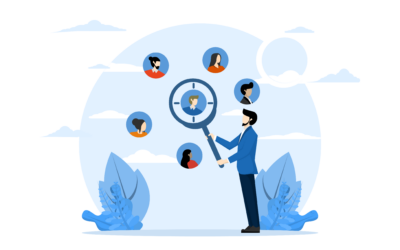The other day, I was talking to one of our sales trainers who told me about a great conversation he had with one of his clients about the distinction between customer satisfaction and customer loyalty. It seems members of their sales team were confusing the two. It made me realize that I might be doing the same thing, too.
- Satisfaction happens when a salesperson (or company) fulfills a customer’s needs, wants, or expectations.
- Loyalty, on the other hand, occurs when a customer offers consistent support or allegiance to a provider (or salesperson).
Satisfaction is dispensed by you to your customer. Loyalty, on the other hand, is a gift from your customer to you. You satisfy; they’re loyal. Satisfaction typically occurs sooner than loyalty. Simply providing customer satisfaction doesn’t necessarily engender loyalty. A customer who is merely satisfied won’t necessarily remain loyal. After all, satisfaction — simple fulfillment — can probably be supplied by virtually anyone. It’s also easy to slip up. In fact, in his book “Generational Selling Tactics,” Cam Marston says that 75% of members of younger buyers (those born since about 1977) will switch to a competitor after just a single bad customer experience. On the other hand, loyalty, is generated after providing consistent and successful satisfaction. It’s a process. Here’s how we, here at The Brooks Group, think it looks:
- Suspect (Completely unaware of you)
- Prospect
- Qualified Prospect
- Opportunity
- Customer
- Preferred Customer
- Loyal Customer
- Advocate
- Zealot (Fiercely loyal)
At each stage, you’re earning more commitment from your customer. It proceeds from the stage where you aren’t even known all the way to the time when your customer tells everyone they know about how great you are. Notice that we’re talking about individuals here. This level of engagement is given by people, not entire companies. Remember that, both B2B and B2C selling is really about P2P! However, you’re not going to gain loyalty from every single customer. You’re seeking — at least — satisfaction. After all, it’s impossible to earn zealousness from everyone you encounter. Indeed, there are even people who don’t like Apple! (I know, can you believe it?!) So, how can you effectively satisfy your customers? A good start is to simply learn what satisfaction means to them and do your best to provide it. @JebBrooks



